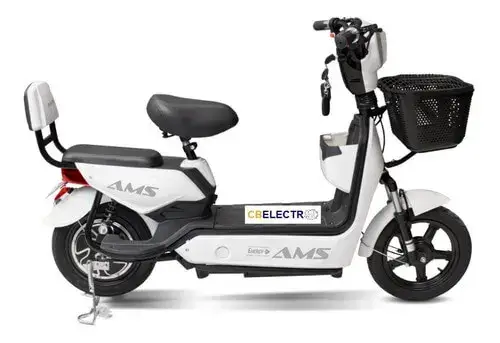Deeply divided Britain faces historic choice on election day
Britain’s exhausted party leaders have spent the past five weeks competing with Christmas markets and holiday shopping trips as they spread their wildly divergent messages across the dark, wet U.K. countryside.
But for Labour’s Jeremy Corbyn, the end of this pivotal election campaign may be coming one week too soon.
Corbyn, 70, whose opponents claim wants to give Britain something akin to a Marxist makeover, has been slowly closing the gap with Boris Johnson’s Conservatives, according to most pollsters.
Whereas Johnson’s oft-repeated «Get Brexit done» slogan has found a receptive audience with many who voted to leave the European Union in the 2016 referendum, Corbyn has continued to promote plans to reinvest in health care and other non-Brexit themes.
«I have come here with a message of hope … for what our party represents,» he told a pre-dawn crowd in Glasgow on the eve of Thursday’s vote.
Lead shrinking
Polls have differed somewhat on the size of the Conservative lead, but all have shown a tightening between the two parties as voting day approached.
Labour Party chairman Ian Lavery urged his campaign teams not to let up until the polls close at 10 p.m. GMT.
«We are only inches away from the winning line,» he told volunteers.
With the Conservatives being the only party in Parliament that favours the current Brexit deal, Johnson needs a majority of the 650 seats to ensure the legislation is passed. A minority, or hung Parliament as it’s called in the U.K., would put the deal to leave the EU in jeopardy.
Stark choices
The choice between the two leaders — and their visions for the U.K. — couldn’t be more stark.
The path of Johnson and the Conservatives involves a huge leap away from the European Union and an uncertain future negotiating trade deals and forging new business relationships with the rest of the world.

Corbyn is offering — whether the U.K. stays in the EU or not — a more socialized country, with redistributed wealth, more nationalized services, such as railways, and likely higher taxes.
He has promised to negotiate a new deal with the EU and put it to a final, in-or-out vote in another referendum to settle the Brexit question once and for all — though Corbyn has said he would officially stay neutral.
‘Oven ready’
The election is clearly Johnson’s to lose and his tightly scripted, take-no-chances final day reflected that.
Stopping at a bakery in Derby, north of Birmingham, and wearing an apron, Johnson put the last bit of pastry on top of what he called «an oven-ready Brexit pie.»
«This is the perfect metaphor for what we’re going to do in the run-up to Christmas if we can get a working majority,» he told the media, suggesting the Brexit deal with Europe is set to go as soon as the election is over.

But Johnson’s constant downplaying of the potential difficulties of navigating a post-Brexit landscape has some observers suggesting the election has been notable more for its lack of truthfulness than anything else.
«The quality of the discourse around this election has been absolutely appalling,» said Matteo Bergamini, who heads up Shout Out UK, an advocacy group that goes into high schools and colleges pushing for political literacy and against misinformation.
Political misinformation
Bergamini said one of the worst examples was when the Conservative campaign headquarters changed the name of its Twitter account to Factcheck UK, making it difficult for social media users to tell the difference between a partisan account and a supposedly independent one.
«The parties are trying to manipulate voters, as opposed to what democracy should be about, which is, ‘This is what we stand for’ and ‘This is what we’re about,'» he said.
Another key feature of the campaign has been the strong focus on the party leaders and their personal characteristics, with very little mention of the potential teams of MPs behind them.
«For a British election, it’s been an extremely presidential style of campaigning, on both sides,» BBC political editor Laura Kuenssberg told Radio 4 on Thursday.
«They are very fixed on the two central characters of Jeremy Corbyn and Boris Johnson.»
Many voters have serious doubts about both men, she said, with the choice coming down to which one is «best of a bad bunch.»
Internal divisions
During Corbyn’s turbulent time as party leader, he’s faced searing internal criticism from party moderates — including former Labour prime minister Tony Blair, who encouraged people not to vote for Corbyn.
Johnson, meanwhile, has been called a serial liar and a racist — including by many Conservatives.
A pre-election Brexit showdown saw Johnson kick 21 MPs out of caucus for defying him by supporting an opposition motion that sought to deny Johnson the option of leaving the EU without a formal divorce agreement.
Among those dumped was 71-year-old Conservative icon Nicholas Soames, a grandson of former prime minister Winston Churchill, who served in Parliament for more than 36 years and is now retired.
WATCH|Retired MP Nicholas Soames describes why he defied Johnson over Brexit.
«Nothing is going to allow the country to put Brexit behind it,» he told CBC News in an interview.
«The process of Brexit is going to last for many, many years,» he said, echoing opponents who argue the Conservatives aren’t telling the truth about Johnson’s «oven-ready» Brexit deal.
In spite of that, Soames says he believes Johnson, the man who ended his long political career, is still the best choice for the country — because the other option is too terrible to contemplate.
«The prospect of a Labour government led by a Marxist who wants to overthrow the established order in this country is more serious even than the effect of Brexit.»
The Liberal Democrats and their 39-year-old leader Jo Swinson had hoped to turn the negatives of both Johnson and Corbyn to their advantage, but the party’s campaign has struggled to gain traction. Pollsters show the party running a distant third.

On the eve of the vote, at a Christmas market in Romford, in north London, many voters reflected the split in the deeply polarized country.
«If Corbyn gets in, I’m outta here, because the country will be ruined,» said Tony Geery of Kent, who was there selling clothes.
But Dianne Masse, who was sitting just a few booths away, shared the opposite view:
«It’s all false promises with them [the Conservatives],» she said. «This country will never be great again, like it used to be.»

A big wild card for all of the parties on Thursday is the weather, which could affect voter turnout.
Britain’s first December election in 80 years is expected to be wet and chilly almost everywhere, with freezing temperatures forecast for most of Scotland.






